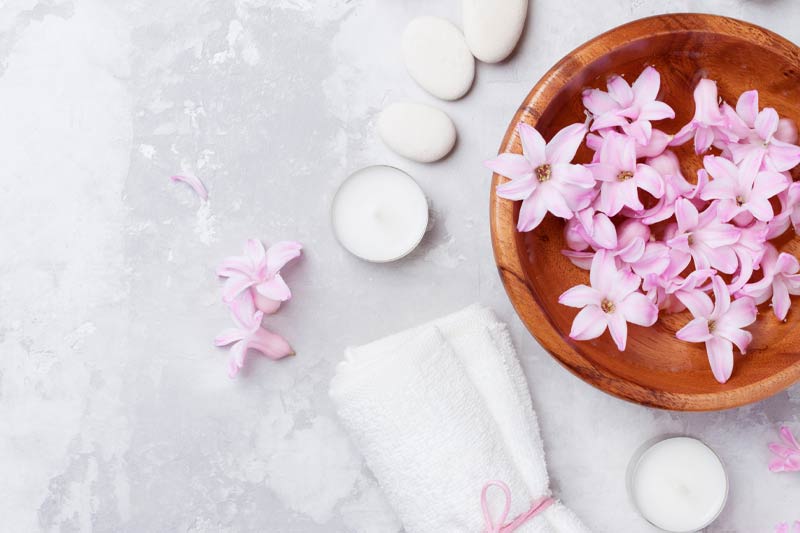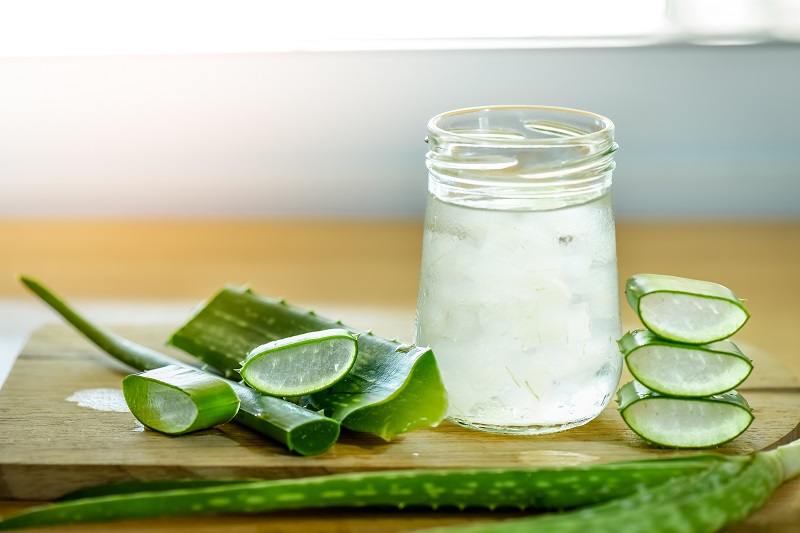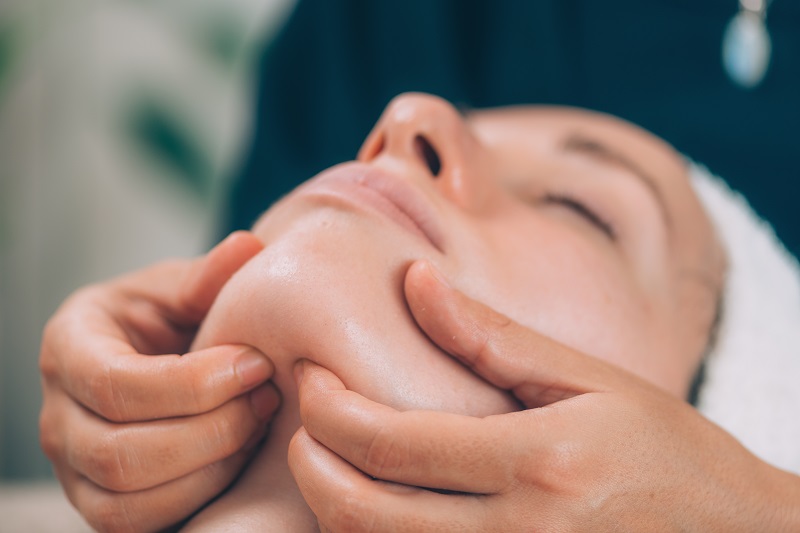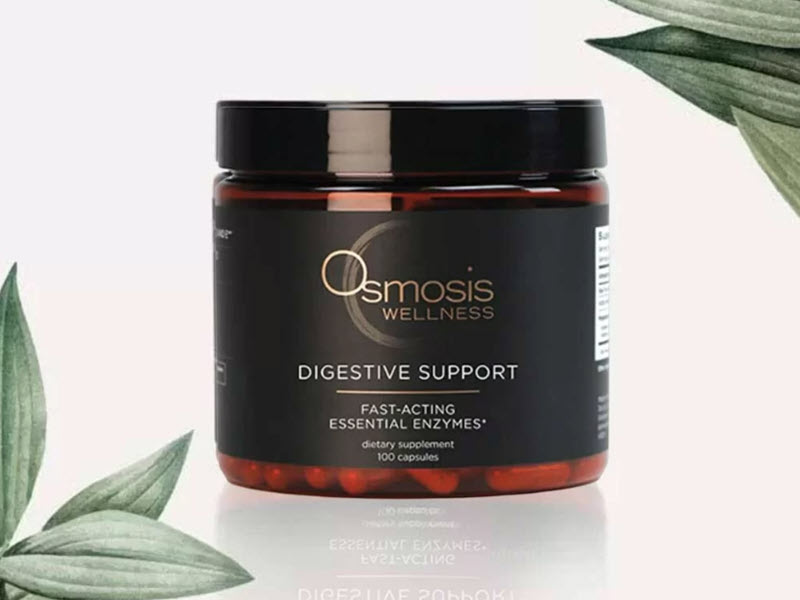Acne is an unpleasant condition manifested by pimples on the skin and can sometimes be a form of skin inflammation. Most people experience acne in puberty and sometimes during other life phases, when hormones fluctuate more than usual. Modern medicine offers various treatments that temporarily eliminate pimples and may prevent future breakouts.
However, these treatments can be harsh and cause side effects, so many people turn to holistic solutions. These are natural treatments that aim to heal the internal causes of acne and balance hormones while reducing symptoms.
This article lists 11 effective holistic acne treatments, providing details on how to use some of them at home.

How to Cure Acne Holistically? 11 Treatments
Research on holistic treatments for acne is limited, but available studies and anecdotal evidence suggest the following herbs, oils, vitamins, and lifestyle changes often help. Many of the listed ingredients are effective because of their antimicrobial properties that prevent bacteria from entering pores and causing acne.
1. Tea Tree Oil
Skin experts recommend tea tree oil as a spot treatment for acne because of its anti-inflammatory and anti-bacterial effects. It helps to minimize breakouts and reduce redness and swelling.
You can use a drop of pure tea tree oil, dilute it with a drop of organic jojoba oil, or mix it with water and dab it with a cotton swab on acne. Make sure to only apply a small amount and don’t use it more than twice a day.
Tea tree oil is considered safe for most acne patients. In some cases, it can cause an allergic reaction or dry out the skin.
Note: Are you looking for more ways to combat inflammatory acne? Our guide to anti-inflammatory skin care explains which ingredients to look for in products and which non-invasive treatments you can try.
2. Jojoba Oil
Natural oils are staple ingredients in a holistic esthetician’s practice, but some of them (e.g., coconut and olive oil) are comedogenic.
Jojoba is recommended for acne lesions because of its anti-inflammatory, anti-bacterial, wound-healing effects, and its ability to balance sebum production. For this reason, is often found in facial cleansers, creams, and clay masks for acne.
Like tea tree oil, apply a small amount directly on acne in the morning and evening.
Note: The term “comedogenic” is used to describe ingredients that are likely to clog pores. People prone to acne should avoid using product with these substances.
3. Aloe Vera

Aloe vera treats various skin issues, from burns and rashes to dry skin and acne. It contains salicylic acid, which is commonly found in over-the-counter and prescription acne products. Aloe vera also contains zinc, another ingredient found to be beneficial in treating acne (more on zinc below).
When used in its natural form as a gel or juice, aloe vera helps to reduce and prevent blackheads and whiteheads.
Apply it in thin layer on clean skin twice a day.
Note: Learn how to recognize different types of acne.
4. Honey
Like aloe vera, honey provides multiple benefits for the skin and has been used as a beautifying agent for ages. Evidence suggests its antimicrobial and antioxidant effects help combat bacteria and inflammation, and clear clogged pores.
Manuka honey from New Zealand is found to be the most effective for acne because of its potent antibacterial properties.
Apply pure honey onto acne lesions with your finger or cotton pad after cleansing the skin once or twice a day. You can also mix honey with other acne-eliminating ingredients (e.g., aloe vera) to create a paste and apply it as a healing facial mask treatment.
5. Green Tea
Drinking green tea is widely recognized as a natural way to improve health, but it can also be used topically as a remedy for acne. This is because green tea contains polyphenols – antioxidants that act as anti-inflammatory and antimicrobial agents and reduce sebum secretion. It also contains caffeine which increases circulation and healing.
Infuse the tea as usual and let it cool. Squeeze out the tea bags and use them directly on acne or dab a cotton ball in the tea and apply it on the skin. Leave it for several minutes.
6. Zinc
Many patients with acne have zinc deficiency. Skin experts view products with zinc as potentially effective for reducing and preventing breakouts via various mechanisms, including:
- Hormone balancing
- Regulating sebum production
- Decreasing inflammation
- Reducing the production of keratin, which clogs pores
Apply zinc topically or take it as a supplement.
Note: Learn more about the causes and treatments of hormonal imbalance acne.
7. Lymphatic Drainage

The lymphatic system collects excess fluid (lymph) in our tissues and returns it to the bloodstream, where it belongs. In the process, it also removes metabolic waste and toxins. When lymphatic fluid accumulates due to an overload of toxins or for other reasons, waste builds up and can cause large breakouts.
Holistic estheticians use lymphatic drainage in their treatments to change the direction of the lymph flow, remove excess toxins from the lymph, and increase oxygen and nutrient flow to cells. This also helps reduce acne.
8. Mild, Oil-Free Skincare Products
Comedogenic ingredients in skincare products are a common cause of acne because they can clog pores, trapping dirt, dead skin cells, and bacteria inside. Look for products that are labeled “non-comedogenic,” “water-based,” or that contain gentle natural ingredients, such as:
- Aloe vera
- Green tea extract
- Honey
- Jojoba oil
- Lavender oil
- Niacinamide
- Tea tree oil
- Titanium dioxide
- Zinc oxide
- Witch hazel
Our recommendation for patients with acne-prone skin is to use a medical-grade cleanser that deeply cleanses the pores, such as Osmosis MD Deep Clean Detox Cleanser. It contains a unique blend of botanicals to remove excess oil impurities and clear the complexion.
Note: For more recommendations, check out our post about natural skincare products.
Apply one pump onto damp skin and massage gently in the morning and evening.
9. Diet Modification
According to the American Association of Dermatologists, high glycemic index diets and dairy may trigger acne breakouts. A holistic esthetician educates the patient which foods to reduce or eliminate from their diet, and which foods to eat more.
High GI foods include processed carbs and sugars, which disrupt insulin function and throw other hormones out of balance, potentially causing excess sebum secretion. Avoid the following foods:
- White bread
- White pasta
- White rice
- Potatoes
- Sugary foods
- Sugary drinks
- Chips
- Processed cereals
Dairy products are often saturated with artificial hormones which may lead to a hormonal imbalance and trigger breakouts.
Focus on introducing healthier foods in your diet, such as fruits and vegetables, lean protein, low-fat dairy, and healthy fats.
Many people report a low-glycemic diet and reduced dairy intake has helped clear their complexion.
10. Supplements

Skin experts suggest increasing vitamin and mineral levels to fight acne by addressing the underlying causes of acne, such as inflammation, hormonal imbalance, and disturbed sebum production.
Some of the beneficial nutrients for acne include:
- Zinc, vitamin A, and vitamin E – May help regulate sebum secretion.
- Turmeric, omega-3 in fish-oil, and vitamin D – Have anti-inflammatory properties helping to soothe inflammatory acne.
- Magnesium – May help lower cortisol, reducing stress-related acne.
Apart from essential vitamins and minerals, skin experts suggest using supplements that promote gut health, such as Osmosis MD Digestive Support Supplement. It contains pancreatic enzymes that help break down nutrients and enhance their absorption, reducing toxicity in the body and clearing the skin.
11. Reducing Stress
Stress is another common acne trigger. High cortisol levels may increase sebum production and cause an inflammatory response, which also contribute to breakouts.
Holistic estheticians help their patients manage stress through meditation, breathing exercises, and massage. You can also improve stress-induced acne by practicing stress reduction techniques at home. These include yoga, listening to music, taking walks in nature, spending time with friends, and other relaxing activities.
When Should You See a Doctor?
Patients are often able to treat mild to moderate acne using holistic products and solutions. Severe acne requires medical help because it is likely to leave acne scars if not treated properly.
Consider seeing a dermatologist if any of the following applies to you:
- At home remedies don’t work.
- You experience increasingly frequent breakouts.
- You have deep, painful cysts and nodules.
- Your condition has affected your mood and desire to socialize.
- You notice scars or dark spots once acne clears.
Note: Learn more about the best treatments for acne scars.
Conclusion
Holistic acne treatments are a great alternative to strong medications because they typically have no side effects, and they contribute to the patient’s overall health.
Schedule a session with our holistic skin care expert to discuss treatment plans for your acne and learn how to prevent future breakouts.


